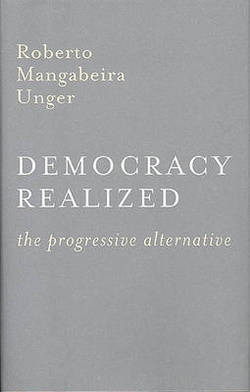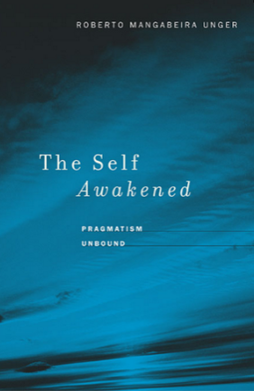Deliberative democracy or discursive democracy is a form of democracy in which deliberation is central to decision-making. Deliberative democracy seeks quality over quantity by limiting decision-makers to a smaller but more representative sample of the population that is given the time and resources to focus on one issue.
The international community is a term used in geopolitics and international relations to refer to a broad group of people and governments of the world.
Critical legal studies (CLS) is a school of critical theory that developed in the United States during the 1970s. CLS adherents claim that laws are devised to maintain the status quo of society and thereby codify its biases against marginalized groups.

Chantal Mouffe is a Belgian political theorist, formerly teaching at University of Westminster.
Arend d'Angremond Lijphart is a Dutch-American political scientist specializing in comparative politics, elections and voting systems, democratic institutions, and ethnicity and politics. He is Research Professor Emeritus of Political Science at the University of California, San Diego. He is influential for his work on consociational democracy and his contribution to the new Institutionalism in political science.

Roberto Mangabeira Unger is a Brazilian philosopher, jurist and politician. His work is in the tradition of classical social theory and pragmatism, and is developed across many fields including legal theory, philosophy and religion, social and political theory, progressive alternatives, and economics. In natural philosophy he is known for The Singular Universe and the Reality of Time. In social theory he is known for Politics: A Work in Constructive Social Theory. In legal theory he was associated with the Critical Legal Studies movement, which helped disrupt the methodological consensus in American law schools. His political activity helped the transition to democracy in Brazil in the aftermath of the military regime, and culminated with his appointment as Brazil's Minister of Strategic Affairs in 2007 and again in 2015. His work is seen to offer a vision of humanity and a program to empower individuals and change institutions.
Experimentalism is the philosophical belief that the way to truth is through experiments and empiricism. It is also associated with instrumentalism, the belief that truth should be evaluated based upon its demonstrated usefulness. Experimentalism is considered a theory of knowledge that emphasizes direct action and scientific control as well as methods and consequences.
Formative contexts are the institutional and imaginative arrangements that shape a society's conflicts and resolutions. They are the structures that limit both the practice and the imaginative possibilities in a socio-political order, and in doing so shape the routines of conflict over social, political and economic resources that govern access to labor, loyalty, and social station, e.g. government power, economic capital, technological expertise, etc. In a formative context, the institutions structure conflict over government power and capital allocation, whereas the imaginative framework shapes the preconceptions about possible forms of human interaction. Through this, a formative context further creates and sustains a set of roles and ranks, which mold conflict over the mastery of resources and the shaping of the ideas of social possibilities, identities and interests. The formative context of the Western democracies, for example, include the organization of production through managers and laborers, a set of laws administering capital, a state in relation to the citizen, and a social division of labor.
Radical democracy is a type of democracy that advocates the radical extension of equality and liberty. Radical democracy is concerned with a radical extension of equality and freedom, following the idea that democracy is an unfinished, inclusive, continuous and reflexive process.
Social democracy is a political, social, and economic philosophy within socialism that supports political and economic democracy and supports a gradualist, reformist and democratic approach towards achieving socialism, usually under a social liberal framework. In practice, social democracy takes a form of socially managed welfare capitalism, achieved with partial public ownership, economic interventionism, and policies promoting social equality.

Military sociology is a subfield within sociology. It corresponds closely to C. Wright Mills's summons to connect the individual world to broader social structures. Military sociology aims toward the systematic study of the military as a social group rather than as a military organization. This highly specialized sub-discipline examines issues related to service personnel as a distinct group with coerced collective action based on shared interests linked to survival in vocation and combat, with purposes and values that are more defined and narrow than within civil society. Military sociology also concerns civil-military relations and interactions between other groups or governmental agencies.

Patricia M. Shields is a Regents' Professor in the Political Science Department at Texas State University. Since 2001 she has been Editor-in-Chief of the international and interdisciplinary journal Armed Forces & Society. She is also a Contributing Editor to Parameters: The US Army War College Quarterly and the Section Editor of the Military and Society section to the Handbook of Military Sciences. Shields is notable for her publications focusing on research methods, civil military relations, gender issues, pragmatism in public administration, peace studies, and the contributions of Jane Addams to public administration and peace theory. She received a BA in Economics from the University of Maryland - College Park, an MA in Economics and a PhD in Public Administration from The Ohio State University.

Pragmatic ethics is a theory of normative philosophical ethics and meta-ethics. Ethical pragmatists such as John Dewey believe that some societies have progressed morally in much the way they have attained progress in science. Scientists can pursue inquiry into the truth of a hypothesis and accept the hypothesis, in the sense that they act as though the hypothesis were true; nonetheless, they think that future generations can advance science, and thus future generations can refine or replace their accepted hypotheses. Similarly, ethical pragmatists think that norms, principles, and moral criteria are likely to be improved as a result of inquiry.
Empowered democracy is a form of social-democratic arrangements developed by Brazilian philosopher and politician Roberto Mangabeira Unger, who first published his theories in 1987. Theorized in response to the repressiveness and rigidity of contemporary liberal democratic society, the theory of empowered democracy envisions a more open and more plastic set of social institutions through which individuals and groups can interact, propose change, and effectively empower themselves to transform social, economic, and political structures. The key strategy is to combine freedom of commerce and governance at the local level with the ability of political parties at the central level to promote radical social experiments that would bring about decisive change in social and political institutions.
Political ethics is the practice of making moral judgments about political action and political agents. It covers two areas: the ethics of process, which covers public officials and their methods, and the ethics of policy, which concerns judgments surrounding policies and laws.
Workplace democracy is the application of democracy in various forms to the workplace, such as voting systems, debates, democratic structuring, due process, adversarial process, and systems of appeal. It can be implemented in a variety of ways, depending on the size, culture, and other variables of an organization.

Democracy Realized: The Progressive Alternative is a 1998 book by philosopher and politician Roberto Mangabeira Unger. In the book, Unger sets forth a program of "democratic experimentalism" that challenges and defies the neoliberal consensus that there are few alternatives for the progressive reform of democratic and market structures.

The Self Awakened: Pragmatism Unbound is a 2007 book by philosopher and politician Roberto Mangabeira Unger. In the book, Unger sets forth a theory of human nature, a philosophical view of time, nature and reality, and a proposal for changes to social and political institutions so that they best nourish the context-transcending quality that Unger sees at the core of human existence. Written in a prophetic and poetic manner that drew comparison with the work of Whitman and Emerson, and delving into issues of humankind's existential predicament in a manner that one critic found evocative of Sartre, The Self Awakened also serves as a summation of many of the core principles of Unger's work.
Judicial populism or juridical populism is a phenomenon where the judgments and actions of the courts are driven by the perception of the masses or certain groups. The term, which some refer to as popular constitutionalism, has been described as a reaction to the perceived elitist bias in the legal system.
Davide Tarizzo (1966) is an Italian philosopher and professor, notable for his academic research and works on political theory and Post-Kantian European philosophy, with particular attention to biopolitics, psychoanalysis(Freud, Lacan), and French theory. He currently serves as professor of moral philosophy at the University of Salerno.






